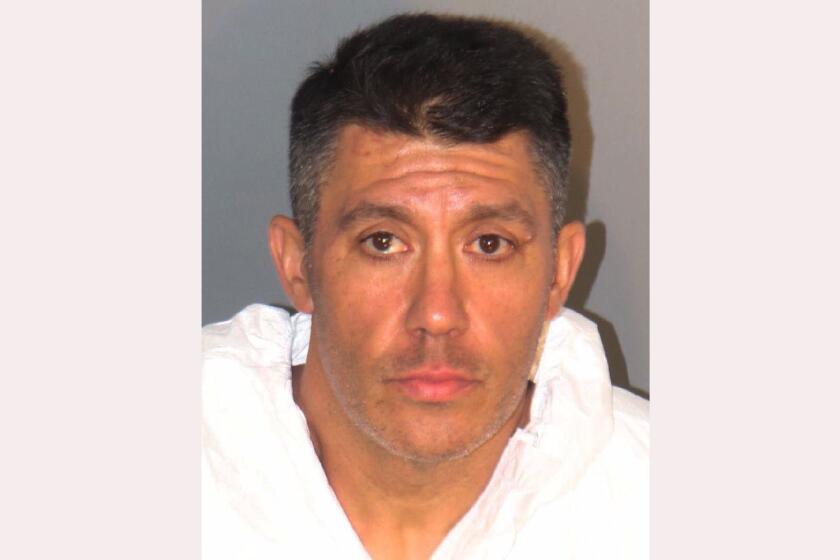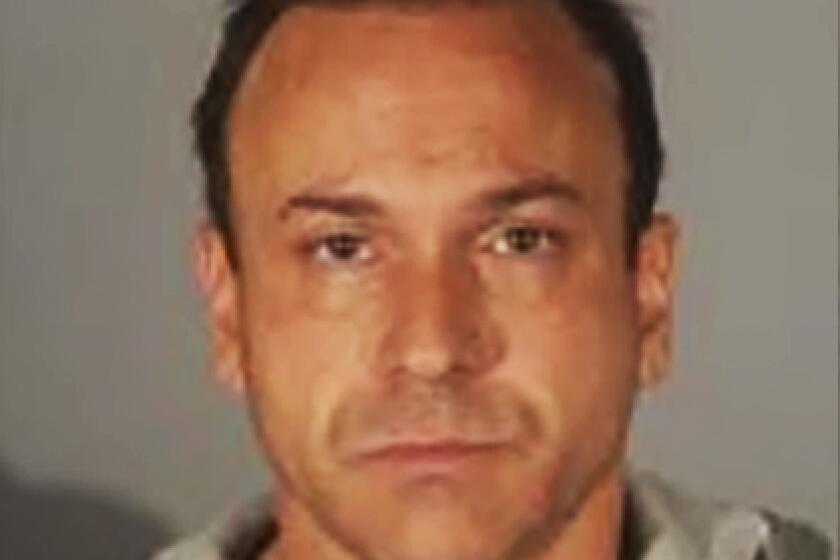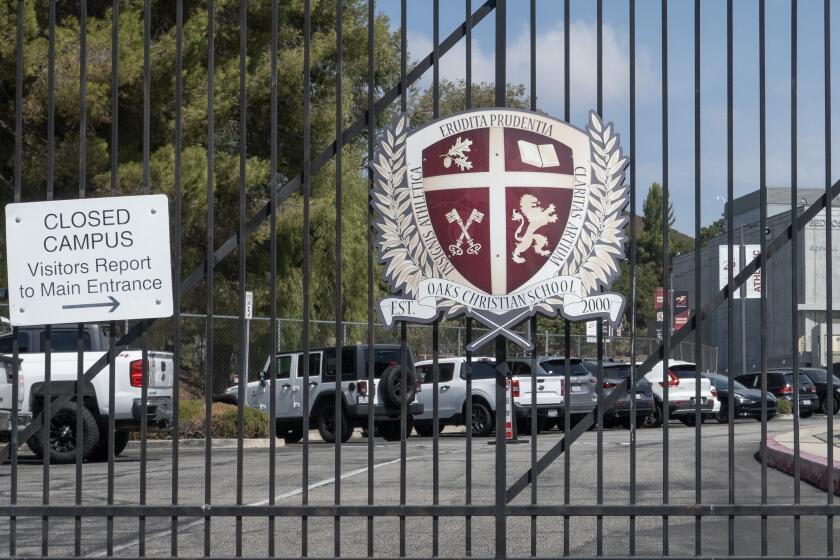ORANGE COUNTY VOICES : With Malice Toward Charities and the Poor Among Us : The demand to get government out of welfare and to leave the fighting of poverty to private agencies doesn’t square with the inhospitality they meet.
Listening to today’s political and populist wisdom is very confusing. We hear a strong demand for a new society where we get government out of welfare and social programs and let the private charities care for the poor. Surely generous donors and selfless will feed the hungry, house the homeless, heal the ill much better than government could attempt to do. Sounds good, but what happens when charities try to do just that?
If charities are good at what they do, if they’re effective and efficient, if they meet a real need and treat those in need with dignity and respect, they will become very successful and unfortunately often a real threat to the community in which they operate. Too many poor people will be painfully visible. Their visibility and all the problems that brings usually evoke a response. I think the response a community gives defines the kind of people we are better than any other indicator.
Tragically in recent years, too many communities in Orange County have responded negatively and fearfully.
Several months ago in Costa Mesa, homeowner groups and the Chamber of Commerce urged city officials to close down some charities by revoking their conditional use permits. Charities are seen as causing the problems by being magnets that draw undesirables into pristine neighborhoods, and if they didn’t exist, the homeless and the poor would disappear, or at least move to another city.
You can see why I’m confused. We say let the private charities do society’s good deeds, but if they’re too successful, don’t let them in my neighborhood or even in my city.
Merchants whose businesses are affected by panhandlers and street people, and residents living close to parks that have become home to the homeless and are impacted by some destructive behavior have legitimate concerns.
But blaming charities and social service providers seems the wrong solution. They did not create poverty and homelessness. And they certainly do not claim they are solving the problem. They are merely trying to alleviate some of the suffering until society finds the right answers.
A bag of food, a hot meal, a blanket or a pair of clean socks are hardly luxury items to lock people into a way of life.
There are some mentally ill homeless people who will never be able to get off the street on their own. We have to accept that fact. Their lack of money has nothing to do with it. They could rent a place if their SSI kept coming or if they kept in touch with their families. But they are so dysfunctional that they continue to wander the streets, littering our landscape and offending our sensibilities.
Who is to blame for them? Should charities let them go hungry? Should we abandon them? We deinstitutionalized the mentally ill, but because we refused to invest in local programs the safety net has huge holes in it and we all are affected.
We also find homeless alcoholics and drug addicts especially offensive--they are frightening and threatening. No one wants them near; somehow we’ve lost sight of their humanity and blame them for their illness.
It is true that they can’t be helped unless they themselves take control of their lives and really want to be cured. Many times, however, they finally get to that place where they are reaching out, but help is not available. Too often, all of the very few residential beds for indigent alcoholics or drug abusers in Orange County are full and there’s a long waiting list. The moment is lost and they sink deeper into misery. Should charities also turn their backs on them?
Another element that is creeping into our national psyche (or perhaps it never left) is the belief that society should help only the “deserving” poor. We are told by some politicians that a pregnant teen-ager is not deserving; an unskilled mother with small children who can’t find work is undeserving; U.S.-born children of illegal immigrants are also not deserving.
It seems the deserving are only those who measure up to our traditional Puritan work ethic where work will make you prosper and prosperity is a sign of virtue, and if you’re poor, you’re somehow less good.
Missing in this equation is the concern for those who truly can’t find work at a living wage because of some disability--illiteracy, no skills, poor health or no child care.
Some nonprofits do a wonderful and needed job for clients who fall into the category of deserving poor. Others choose to use limited resources where they have the greatest chance of success. The charities that are troublesome are the ones that serve those who pose the greatest challenge to us as a society. These charities become scapegoats for our failure as communities to deal effectively with our most intractable problems--homelessness, mental illness, drug abuse, the unskilled.
These problems shouldn’t have to be faced by one city, one agency, one neighborhood, or one business location. They need to be tackled on at least a regional level with adequate resources and staunch resolve by people of talent and good will who somehow still cling to the notion that we are our brothers’ keepers.
More to Read
Sign up for Essential California
The most important California stories and recommendations in your inbox every morning.
You may occasionally receive promotional content from the Los Angeles Times.










